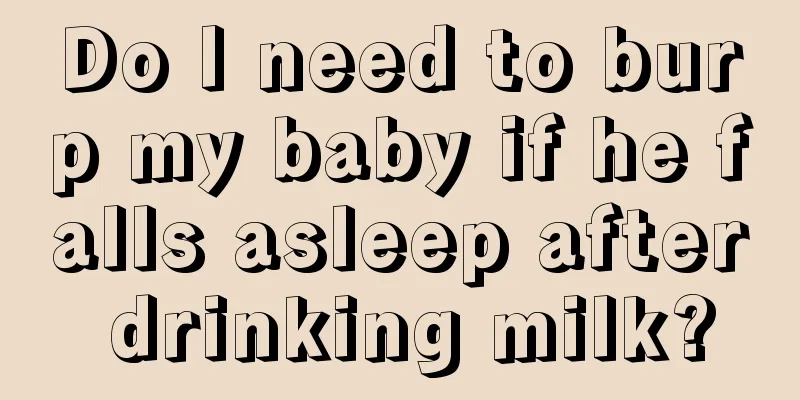What to do if your baby often spits up milk? 6 ways to improve

|
It is very normal for babies to spit up milk. Basically, many parents have encountered the phenomenon of babies spitting up milk. In many cases, spitting up milk is caused by the baby eating too quickly, that is, swallowing too much air before feeding. In addition, the baby's digestive system is not yet fully developed, so it is easy for the baby to spit up milk if you are not careful. When feeding the baby, you should feed slowly, patting the baby while feeding, to facilitate better absorption. What should I do if my baby always spit up milk? In addition to burping, you need to master these methods Most of them are caused by physiological reasons Most of the time, babies spit up milk due to their physiological characteristics. This is because the baby's digestive system is not yet fully developed. Their stomach is still small and does not sag like that of adults, but is horizontal. In addition, the stomach outlet is tight and the entrance is loose, so milk can easily reflux and cause milk regurgitation (vomiting). Babies are more likely to spit up milk when they eat too quickly, are too full, swallow a lot of air, or move excitedly after feeding. In addition, a small number of spitting up is caused by illness. Generally, the baby will show symptoms of discomfort such as poor spirits, lack of appetite, crying, etc. Therefore, new mothers don’t need to worry, it is generally normal for babies to spit up milk. However, sometimes the baby will spray milk from the nose and mouth, and sometimes the spitted milk will have curds. What's going on? This is quite normal, because the nose and mouth are connected, and the curds are the result of milk and stomach acid. If it only happens occasionally, the baby is in good spirits, has a good appetite, is growing and developing well, and does not show any pain or discomfort when spitting up milk, then there is no need to worry, just pay attention to taking good care of the baby. Generally, the baby's regurgitation will naturally improve after 6 months. All parents hope that nothing will come out of their children after feeding, and they will be nervous if something comes out. However, in this process, two aspects must be distinguished. On the one hand, it is milk regurgitation, which means that milk just flows out from the corners of the mouth without much effort, or even flows out when the stomach is slightly pressured or the posture is slightly changed. The child does not have any expression of pain, which we call milk regurgitation. The reason for milk regurgitation is actually very simple, because the lower end of our esophagus and the upper end of the stomach are relatively loose, that is to say, the door is not closed tightly enough. Once the abdominal pressure increases and the body position changes, the milk will flow out, just like a bottle falling over and water flowing out. It's not a problem with the bottle or the water. In this case, it will take some time. After 6 months, this condition will naturally get better, and there will be basically no problem after 1 year old. This happens to the vast majority of children. 40% of children spit up milk at least once a day. It is very common. But there is another type, which is vomiting. Vomiting is an action, and vomiting comes after vomiting. He vomits actively first and then vomits. He must feel uncomfortable. At this time, we will consider gastroenteritis, or other problems, allergies and so on. Therefore, parents must first determine whether it is milk regurgitation or spitting up. Don't just say that spitting up is the result of milk coming out. First see if the child has a painful expression. Some children may have throat irritation and spit it all out, and then eat it again 5 minutes later. There is no need to be nervous about this. Therefore, you must first determine whether it is milk regurgitation or spitting up. When spitting up milk, we need to see whether it is pathological or physiological. The pathological one is accompanied by some infection or allergy, while the physiological one is that the throat may be stimulated by something, such as picking or sucking the fingers, and the baby may pick the fingers to the throat while eating, and then spit it all out, but he will continue to eat when you feed him later. Vomiting can be divided into physiological and pathological causes. For pathological causes, the child needs help from a doctor. For physiological causes and regurgitation, parents just need to observe at home. Therefore, make sure before going to the doctor. Don’t let the doctor think that the child has allergies or other problems as soon as you hear the child “frequent spitting up milk”. In fact, it is frequent regurgitation of milk, which is a completely different degree. After parents have mastered the knowledge, they can communicate easily with doctors and may be able to determine the cause, what treatment to use, and whether to need treatment in a short period of time. It will be very easy to master. What should I do if my baby always spit up milk? In addition to burping, you need to master these methods 6 ways to help improve baby spitting up The baby always spit up milk, and what the mother wants to know most is the method. In addition to burping, the mother should pay special attention to the first and second methods. 1. Do not feed too frequently or overfeed. After a baby finishes feeding, it takes 2-4 hours for the breast milk or formula to be digested and eliminated. After the baby regurgitates milk, the mother is always worried that the baby is not eating enough, so she feeds the baby again shortly after each regurgitation. This will cause the baby to eat too much, aggravating the regurgitation and spitting up of milk. 2. Do not hold the baby's diaper too tightly to avoid excessive abdominal pressure. In addition, do not lift the baby's legs too high when changing diapers. Do not play with the baby or hug the baby too tightly when the baby has just finished feeding. 3. Adjust the breastfeeding posture. Try to hold your baby while feeding, and keep his body at a certain angle. This will reduce the chance of milk spilling compared to feeding while lying down. 4. Burp your baby. There are usually three postures for burping: (1) Hold the baby upright in front of your chest with his head resting on your shoulder and pat his back gently. Make sure to support the baby's head. (2) Help your baby sit on your knees, place one hand in front of the baby to support his chest and head, and pat his back with the other hand. (3) Let your baby lie on your legs, support his head so that it is higher than his chest, and pat his back gently. If the burp doesn't come out after a few minutes, don't worry, as babies don't always hiccup. 5. If the baby needs to lie down after feeding, you can raise the upper body and lie on the right side for a while, and then change to lying on your back. 6. For babies who are fed with milk powder, you should pay attention to choosing a nipple hole of appropriate size. If it is too big, the baby may choke due to milk coming out too quickly. If it is too small, the baby may have difficulty sucking and may swallow too much air. |
<<: What to do if your newborn baby is constipated
>>: How to correct a boy's hunchback
Recommend
How to treat congenital heart disease?
Indeed, in the TV dramas I watched when I was a c...
What Chinese medicine should babies take when they have internal heat?
The baby's immunity is relatively weak, espec...
What to do if your baby has milk accumulation
Some babies have been fed half breast milk and ha...
Can I still get a booster shot after stopping vaccination for two years?
Vaccination is very important for children, becau...
The child coughs and has bleeding spots on his face
When a child coughs, there are bleeding spots on ...
At what age do children usually start to speak? At what age is it normal for children to speak?
From the moment they are born, children develop a...
Neonatal aspiration of amniotic fluid and meconium
If a newborn inhales too much amniotic fluid or t...
2 month old baby sticking out tongue
Newborns will show many cute symptoms during thei...
How to deal with mites bites
Mites are everywhere in people's lives. Mites...
When do sweat glands develop in newborns?
The sweat glands of newborns are not fully develo...
Nursing of acute conjunctivitis in children
Eyes are the windows to our soul, but in spring a...
5 reasons why children always lose their temper with their parents
It is common to see children yelling at their par...
What should I do if my baby has phlegm in his throat and snores?
Regarding the phlegm in the baby's throat, th...
Why do children have swollen bags under their eyes?
Everyone thinks that eye bags are a phenomenon th...
What should children drink when they have a fever?
Children will always have various problems as the...









